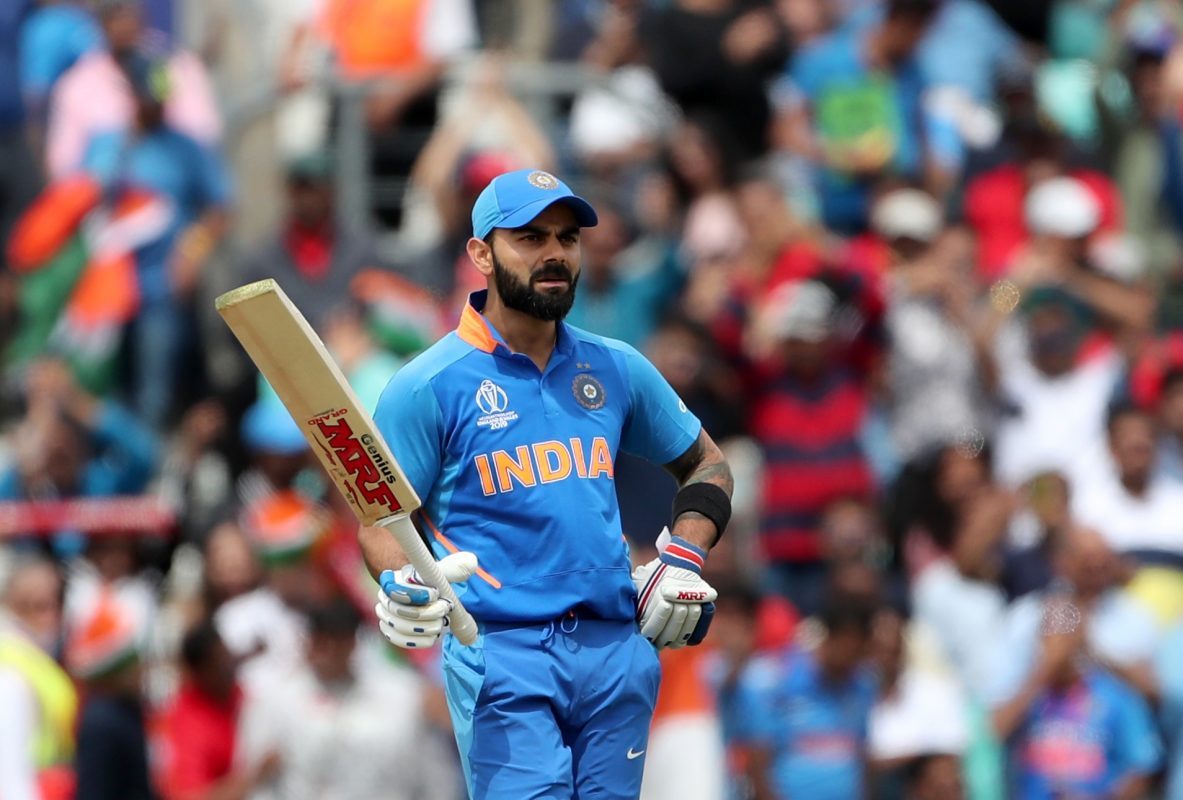Nuke energy critical for India’s ‘Net Zero’ goal: Jitendra Singh
The Union minister for science & technology highlighted the Union Budget 2024-25’s vision for India’s nuclear power expansion that sets a target of achieving 100 GW by 2047.
There was a time when there was not a single pace bowler in the team, not even for the opening attack.

( Representational Photo: IANS )
In walking away, when all set to score a glorious century against Pakistan, Virat Kohli (in photo) has set an example for the cricketers all around the world as well as budding youngsters. This is not about the gentleman’s game of cricket alone, but also about ethics, values and traditions.
From its very inception in 1975, every World Cup has seen the imprint of a towering personality, a player who is far ahead of others and held both in awe as well as high esteem. Clive Lloyd in 1975 and Vivian Richards in 1979 thrashed almost every bowler; the 1983 edition belonged to Kapil Dev, while nothing could go wrong for Allan Border’s Aussies in 1987. Though New Zealand lost in the semifinals of 1992, it was surely not Imran Khan but Martin Crowe and Mark Greatbatch, who would be remembered for successfully reversing the slog overs theory by blasting every bowler in the first fifteen overs, a style which continues to be a match-winner even today.
Advertisement
The Sri Lankan victory in 1996 was attributed to Aravinda De Silva and in 1999, despite the masterly Steve Waugh, it was Shane Warne all the way. Despite three centuries in the 2003 World Cup by Saurav Ganguly, it was a Ricky Ponting show as was the case in 2007. Yuvraj Singh dominated the 2011 edition of the tournament, while Michael Clarke won it for Australia in 2015. So far, the Indian team has given a first rate performance with a hundred percent record of wins except that in one case it had to share the points due to rain. The variety in our bowling attack fully compliments our strong batting line up.
Advertisement
There was a time when there was not a single pace bowler in the team, not even for the opening attack. This situation continued, until the arrival of Kapil Dev on the scene, so much so that sometimes even Gavaskar had to open the bowling. In one Test match (Old Trafford 1967), even Pataudi and Budhi Kunderan (reserve wicket keeper) had to open the bowling. Now, the success of Bumrah, Bhuvneshwar and the spinners, all match winners, is bound to be infectious and would inspire numerous youngsters to turn their arms over in a country where batsmen have usually cornered all the glamour and glory.
In the prevailing atmosphere of heavy sledging and intimidating body language on the field, and psy-war tactics off it, one has almost forgotten that cricket used to be known as a ‘Gentleman’s game’, where certain norms and traditions were important. In fact, till the early 1960s, the match between the Gentlemen and the Players used to be a regular feature in England. Today, perhaps the over commercialisation of the game is responsible for the present state of affairs
It is in this context that Adam Gilchrist’s decision to walk in the World Cup 2003 semi-final with Sri Lanka, when the umpire had ruled him not out, appears to be a rare gem of a gentlemanly behaviour. Brian Lara also belonged to this rare breed which has now been enriched by Virat Kohli. The little master as he was affectionately known, Gundappa Vishwanath, however, surpassed them all. He had assumed the captaincy of India in the sixth and the last Test at Calcutta during Pakistan’s tour of 1979- 80, the series having already been decided in India’s favour under Gavaskar.
This was followed by the Golden Jubilee Test between India and England in what was then Bombay in February 1980, also known as Botham’s test. India batting first went cheaply for 242, Botham claiming six wickets for 58 runs. In reply, England were tottering at 58 for five, when Botham was given out. While he was just off the crease enroute the pavilion, the appeal was withdrawn by our captain, who was none other than Vishwanath, enabling Botham to score a match-winning 114.
In India’s second innings, he claimed seven for 48 to give England an easy victory in less than 4 days. Vishwanath’s action won wide acclaim but it is a different story that he had to step down from captaincy, followed by a somewhat premature retirement at the end of the next season. Virat Kohli has already achieved 11000 runs in the lowest number of ODIs and in the shortest period and is bound to break most records in all formats of the game in due course.
The example set by him to walk away when the umpire had not given him out at a very crucial stage of an all important game, will always be spoken of in superlative terms and continue to inspire players as well as lovers of the game for a long long time.
The writer, a former Governor of Uttarakhand and Meghalaya, was Commissioner of Delhi Police and unearthed the Hansie Cronje betting scandal.
Advertisement